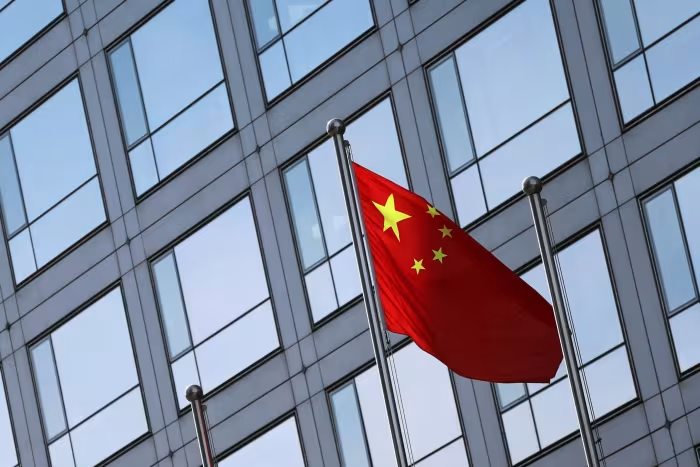SHANGHAI/HONG KONG, Jan 23 (Reuters) – China unveiled plans on Thursday to direct hundreds of billions of yuan from state-owned insurers into the stock market, marking the latest in a series of government efforts to bolster its struggling equities market.
The initiative, announced by six of China’s financial regulators—including the securities watchdog—was first revealed on Wednesday, coinciding with Donald Trump’s return to the U.S. presidency. This timing, shortly after Trump threatened to impose a 10% punitive tariff on Chinese imports, highlighted Beijing’s determination to stabilize its markets amid a potentially tense geopolitical landscape.
Following a press conference by China Securities Regulatory Commission (CSRC) head Wu Qing, stocks showed modest gains. The CSI300 blue-chip index was up 0.2%, while the Shanghai Composite Index gained 0.6%. In contrast, Hong Kong’s Hang Seng Index pared early gains, slipping 0.6%. A gauge tracking insurers surged 3.3%, with China Life Insurance rising 4.8%.
Ben Bennett, Asia-Pacific investment strategist at Legal and General Investment Management, noted that while the new plan is consistent with previous efforts to boost capital markets, it is encouraging to see tangible policies in action. “These measures need to be coupled with stronger growth and earnings expectations to be truly effective,” Bennett added.
Wu outlined that regulators would urge insurers to invest at least 100 billion yuan ($13.75 billion) of long-term funds into stocks in the first half of the year. The authorities also aim to have large state-owned insurers invest 30% of new annual premiums in A-shares and encourage mutual funds to increase their holdings in A-shares by at least 10% annually over the next three years.
“Medium- and long-term funds play a crucial role in capital markets as professional investors, acting as the ‘ballast’ and ‘stabilizer’ to ensure a smooth and healthy market,” said Wu.
This new plan is expected to channel “several hundred billion” yuan into onshore stocks annually, strengthening the positive momentum of the capital market, according to the CSRC.
In addition to these measures, regulators will guide mutual fund managers to boost investments in their own equity products, reduce sales fees, and promote the growth of exchange-traded funds (ETFs).
The Chinese government has intensified its policy support for the stock market, which has struggled amid an ongoing property crisis, deflationary pressures, and geopolitical tensions. Last September, authorities launched swap and re-lending schemes totaling 800 billion yuan to support stock purchases, alongside new guidelines to encourage companies to improve shareholder returns.
Since then, the market has experienced significant volatility. The CSI 300 index surged by 40% in the two weeks following the initial stimulus announcement, but investor disappointment over the pace and extent of policy implementation has since caused the index to lose much of those gains.

